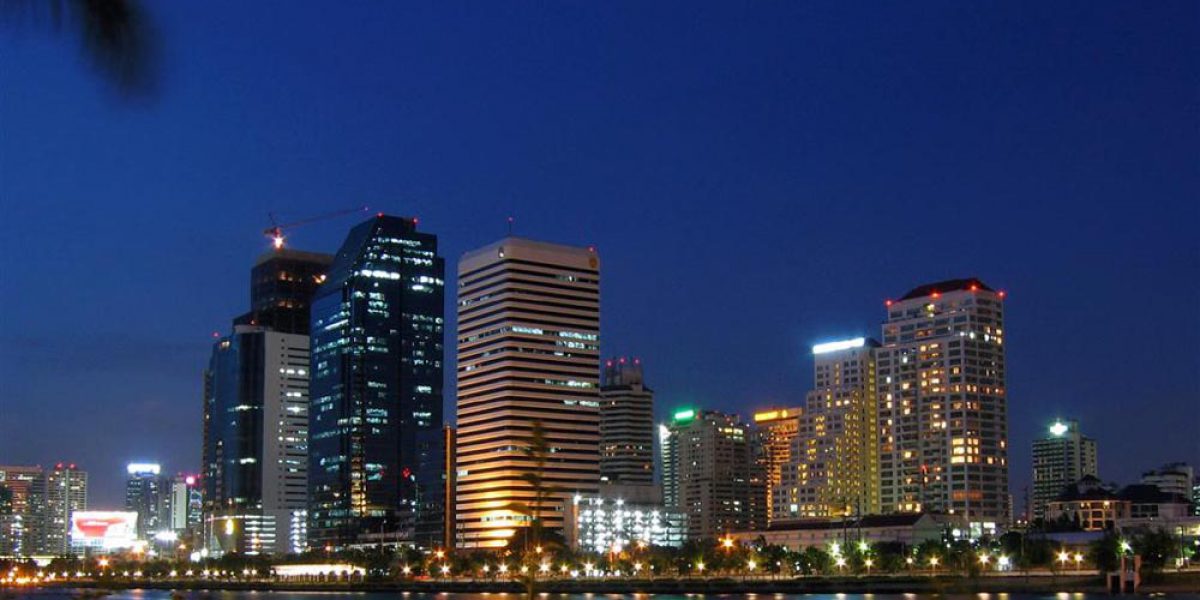Asia Pacific: What is an urban refugee?
11 August 2010|Oliver White, regional advocacy communications officer, Asia Pacific

Bangkok, 11 August, 2010 – Jesuit Refugee Service, one of the few organizations to assist refugees in urban settings worldwide, has long recognized the severe state of neglect of urban refugees, and has tried to address these needs. Through advocacy to UNHCR and local authorities, direct assistance with food, housing and medical expenses, education, livelihood projects, and counselling and referral services, JRS addresses the broad spectrum of needs of urban refugees.
In many countries hosting large displaced populations, refugees are tolerated only if they consent to live in camps designated by the government. These may be open camps, which refugees can come and go more or less freely, or closed camps, where refugees are confined by physical or legal barriers.
Camp life can be harsh, characterized by poor standards of housing, sanitation, lack of adequate food, water, and medical facilities, a lack of security and, perhaps worst of all, enforced idleness and dependency. Refugees who chose not to live in camps or who fear to do so may be treated like escaped prisoners: subject to arrest, detention, forced return or even deportation. Even under more lenient regimes, refugees who do not live in camps are usually at best ignored, and are subject to neglect and exploitation. In those refugee hosting countries that have not established refugee camps, refugees typically subsist on the margins of society: tolerated, perhaps, as a source of cheap labour, but lacking access to legal status, legal employment, medical care, education and social services.
For many years, the Office of the UN High Commissioner for Refugees (UNHCR) – the organization responsible for ensuring the protection of refugees – and international donors and aid agencies to a large degree accepted encampment as a necessary, temporary expedient, feeling that this was a price that had to be paid in order for governments to permit refugees to stay on their soil, and also feeling that the job of housing, feeding, and protecting large populations could best be achieved in an ordered and contained camp environment. In accordance with this view, refugee aid programs have often been limited to camps or to rural border areas where refugees reside in camp-like settings. As time has passed, however, and the hoped-for durable solutions of return home, integration into local communities, and resettlement have in many instances proved unattainable, temporary camps have become permanent homes to generations of increasingly despondent people. Funding to support refugee camps has also become harder and harder to maintain, and the resulting deterioration of facilities, cuts in already meagre food rations, and overcrowding have led to a host of social ills.
In the meantime, the number of refugees living in urban settings has grown, with the majority of refugees finding it necessary to make their own way in towns and cities. Increasingly, there has been a trend for refugees to leave camps or to bypass them entirely, seeking instead to settle in communities where they hope to find jobs to support themselves and their families. This trend has led to a re-evaluation of refugee needs by the international community, as reflected in the new urban refugee policy recently published by UNHCR. The policy re-asserts the principle enshrined in international treaty law that refugees have the right to freedom of movement and are entitled to protection and assistance wherever they live.
One of the greatest barriers to improving care to urban refugees is their invisibility. Because they are so often barred from legal employment, urban refugees live in the poorest neighbourhoods, distant from city services. Many refugees are afraid even to ask for help, knowing that risking the attention of the authorities could get them thrown into a jail or detention facility with the prospect of either lengthy incarceration under appalling conditions or summary deportation. For these refugees the quiet assistance provided by JRS can be a lifeline.
Even for refugees not afraid to seek help, a lack of legal documentation often means exclusion from services. In many countries, the lack of work authorization papers limits refugees to work in the “informal sector,” surviving on odd jobs, and often undertaking dangerous and physically demanding work for little pay. Refugee workers are commonly exploited, and their lack of legal status means it is impossible to seek redress.
The burden of daily survival combined with the social isolation that refugees experience in unfamiliar cities often leads to a sense of desperation. Outreach, counselling and social support, are key elements of JRS programs. In addition to providing individual care, in cities such as Bangkok JRS has established a community centre where refugees can gather.
Access to education for their children is one of the greatest challenges facing urban refugees. Barriers such as language or the law often prevent children from attending school. Too often, the cost of education is simply too high for people struggling to meet basic needs. JRS tries to help refugees to gain access to education in many ways, through advocacy with local authorities, through payment of school fees, by establishing classes especially for refugees, and by helping parents to earn an income and become self sufficient.
The successful programs carried out by JRS demonstrate that it is possible to help refugees to survive and prosper in an urban setting, despite the many barriers that they face. The growing needs of urban refugees far outstrip the resources of any one agency, however, and require a concerted effort by governments, international institutions, and civil society to address.
The new UNHCR urban refugee policy presents a welcome opportunity to develop a more enlightened and comprehensive approach to identify, protect and serve refugees in urban settings. This will require efforts to end policies of forced encampment, arbitrary arrest and detention and the failure of states to adhere to existing refuge law.


